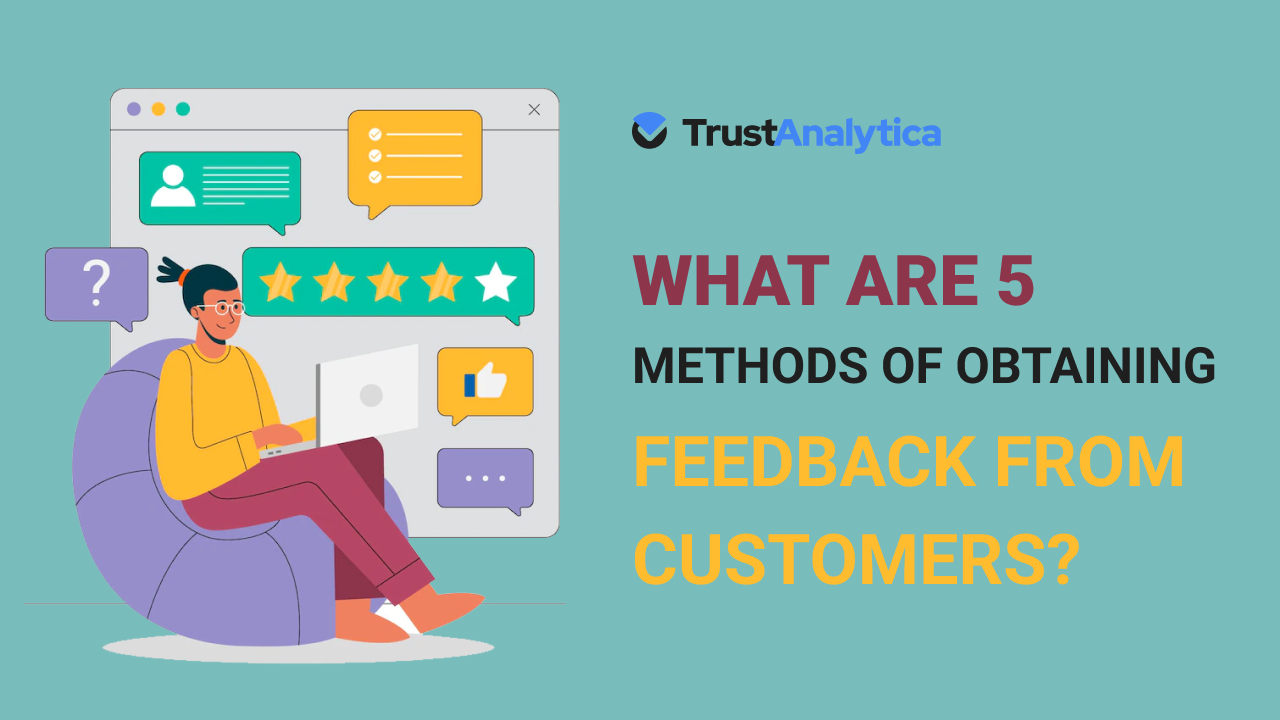Any business does not amount to much if its customers do not consider it a reliable brand. This fact is more visible in the virtual world because customer feedback is held superior at different levels, from engagement and exposure to conversions and sales. In the face of a solid sales copy, people are more attracted […]

Any business does not amount to much if its customers do not consider it a reliable brand. This fact is more visible in the virtual world because customer feedback is held superior at different levels, from engagement and exposure to conversions and sales.
In the face of a solid sales copy, people are more attracted to peer-generated content because it is supposedly neutral and close to the ultimate truth. That’s why brands are now racing to collect and consolidate positive sentiments from users to ensure that prospects move in, instead of spending too much time on the fence.
Still, brands struggle when it comes to collecting feedback. On the face of it, even satisfied customers tend to skip the feedback.
So, this blog will cover the central premise of customer feedback, its importance, and how a brand can get customers to provide their feedback.
Customer feedback is the input from users after buying products or services from a brand. Usually, feedback describes their whole experience, from approaching a brand to ordering a product or service to receive and utilizing that item.
The most common types of customer feedback are based on their mode of collection and usage. These include customer reviews, testimonials, surveys, polls, ratings, and so on.
Perhaps the most obvious and important reason to collect and consolidate customer feedback is the changing attitudes of online consumers. In the past, brands had the last say about a product or service. Now, users are more cordial toward a stranger’s word than that of a brand.
That’s why businesses are devising new and enticing ways to get word from users and then use it for both quality improvement as well as marketing reasons.
The virtual world works a lot like the real one. First-time shoppers, find out a product on a brand’s website and start digging further. Going through the homepage, the most important thing for them to make or break a deal is what other customers, like them, say about the brand. That’s the reason over 55% of new prospects read at least four reviews before making a purchase.
In this section, we will take a look at some of the benefits of customer feedback that make it important for businesses.
Quality Improvement
There is no way around providing quality and valued products and services to clients. When a brand gets customer feedback, it allows it to see what is working and what is not. For instance, if an eatery makes great food but customers are getting it cold and dry because of the delivery riders, brands need to act upon it quickly before losing precious business.
Social Proof
Social proof is the overall value of positive customer sentiment that a brand possesses. The phenomenon has gained a lot of traction in modern times because of the uncertainty of the virtual world. Instead of relying on marketers and influencers, online shoppers are more concerned about what other average users are saying about the product, service, or even the brand itself.
Better SEO
Google has said time and again that customer reviews and engagement send positive signals to web crawlers. In the most primitive and basic sense, it keeps the conversation going and lets the search engine know that the said brand is indeed legitimate and reliable. This sense of trust spreads throughout the web, mostly resulting in improved search results ranking.
As mentioned in the earlier sections, many satisfied customers do not feel magnanimous enough to leave positive words. However, if they ever feel the quality or delivery of the service to be subpar, they do not hesitate for a second to thrash that brand online.
So, how can you get your customer to get feedback – hopefully positive feedback? This starts with giving them options and allowing them to be at ease. Many brands push the premise hard resulting in customers getting spooky and leaving the review altogether.
In this section, we will cover five of the mediums that can help brands connect with customers and get their side.
One of the most popular and oldest methods in the book is getting customer feedback. Whether through subscriptions to a newsletter or through product orders, brands collect the email addresses of their customers and then use them to get word.
The benefits of email feedback are far and many but the most obvious one is the cost and work. Through automated tools, you can set up a whole campaign. On the negative side, many people are not willing to compose a passage to describe their experience. Still, this medium is going strong and many large brands rely on it.
Surveys have existed in the digital marketing sphere for a long time. They allow brands to get more structured and meaningful data regarding their products and services than an impromptu email. There are many types of surveys, depending on their purposes, and your brand can develop and dispatch one without much hassle, using dedicated survey designing software.
Surveys are easier for customers and brands alike as they can communicate in a more meaningful manner. However, surveys also carry a negative air because they tend to be long and time-consuming.
Focus group, as the name indicates, is the idea of getting a small group of people from intended consumers and discussing different aspects of the product, delivery, and so on, with the help of a moderator. This is mostly done in colleges and universities for social experiments, but brands can take advantage of the premise.
One of the major benefits of focus group feedback is that responses can always be clarified and quantified. Still, they are extremely expensive and time-consuming, not to mention getting the right people in a room is a tough proposition.
When we say digital channels, we are excluding emails, surveys, and even virtual focus groups. We are simply talking about social media channels, video-sharing sites, and so on. People now spend more time exploring videos on YouTube, swiping trends on TikTok, or tweeting and Instagraming about their latest sojourn. Brands can take advantage of that by becoming creative.
It is also observed that people are more willing to interact when they are immersed in digital channels. That’s why responses tend to be honest and reliable. On the flip side, it can be extremely difficult for brands to quantify responses because they can be biased.
Free-text feedback comes from surveys that are based on more open-ended questions. Brands that did not have much success in the past with other surveys and feedback methods can take great advantage of this setup. From simple yes or no, brands can extract opinions, views, and all sorts of responses from users through free-text feedback.
These types of surveys are getting a lot of attention from both marketers and users because they are easy to set up, dispatch, receive, and process.
There is no denying that customer feedback takes a central place in the modern virtual world. People look for social proof and other forms of peer-generated content before hitting the buy button. In this blog, we have gone through the nature and importance of customer feedback. We have also jotted down some of the best ways to collect, consolidate, process, and showcase customer feedback from clients. This will allow brands to nurture better and deeper relations with their customers and prospects.
If you are facing trouble with customer feedback management, TrustAnalytica is happy to take all the load off of your shoulders. The system is smart, secure, and automated. So, you do not have to worry about it at all!
The most common ways a business collects feedback include surveys, emails, and interviews. In addition to this, free-text surveys are getting attention in the circles.
The process of requesting feedback from clients should cover these areas:
The most common methods that brands can use to get feedback include:
According to research, there is no single way that can serve all types of businesses and their clientele. However, email and surveys continue to be the most effective forms, when it comes to collecting, processing, and consolidating customer feedback.
 How to Manage Social Media Reputation? Ultimate Guide for 2023
How to Manage Social Media Reputation? Ultimate Guide for 2023  How To Get Aggregated Google Rating Stars In Search Results
How To Get Aggregated Google Rating Stars In Search Results 
